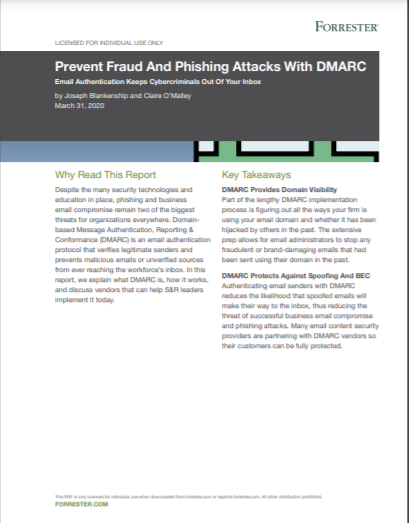Weekly threat roundup: Microsoft, Adobe, Wi-Fi gadgets
Pulling together the most dangerous and pressing flaws that businesses need to patch


Patch management is far easier said than done, and security teams may often be forced into prioritising fixes for several business-critical systems, all released at once. It’s become typical, for example, to expect dozens of patches to be released on Microsoft’s Patch Tuesday, with other vendors also routinely getting in on the act.
Below, we have collated the most pressing disclosures from the last seven days, including details such as a summary of the exploit mechanism, and whether the vulnerability is being exploited in the wild. This is in order to give teams a sense of which bugs and flaws might pose the most dangerous immediate security risks.
Microsoft patches three zero-days
A zero-day flaw in the beleaguered Exchange Server platform was among the 55 vulnerabilities Microsoft fixed as part of its latest Patch Tuesday round of security updates.
The flaw, tracked as CVE-2021-31207, is present in the same platform that was at the heart of a devastating supply chain attack earlier in the year, although it hasn’t yet been exploited by cyber criminals. It’s described as a security feature bypass flaw and was discovered as part of last month’s Pwn2Own contest.
This has been fixed alongside two other zero-day vulnerabilities. These are an elevation of privilege flaw in .NET and Visual Studio, tagged CVE-2021-31204, and a remote code execution flaw in Microsoft's Common Utilities component, tagged CVE-2021-31200.
Adobe fixes Reader bug under attack
Adobe’s Patch Tuesday included multiple fixes for 12 different products, including a zero-day flaw in Adobe Reader that’s under attack.
CVE-2021-28550, in Adobe Reader, is a user after free bug that has led to reports of remote code execution attacks against Windows users. However, the bug also affects Adobe deployments on macOS machines, although exploitation hasn’t yet been detected. This vulnerability was fixed alongside bugs in Adobe Experience Manager, InDesign, InCopy, Genuine Service, Acrobat, Magento, Media Encoder, After Effects, Medium, Animate, and the Creative Cloud Desktop.
Get the ITPro daily newsletter
Sign up today and you will receive a free copy of our Future Focus 2025 report - the leading guidance on AI, cybersecurity and other IT challenges as per 700+ senior executives
Of the 14 flaws, 11 could have been exploited to launch remote code execution attacks, while the other three were described as a memory leak, arbitrary file system read and privilege escalation flaw.
RELATED RESOURCE

Prevent fraud and phishing attacks with DMARC
How to use domain-based message authentication, reporting, and conformance for email security
WordPress patches critical object injection flaw
WordPress has fixed a critical vulnerability with version 5.7.2 that’s been described as an object injection flaw in PHPMailer, which is a code library used to send emails using PHP code from a web server.
Rated 9.8 on the CVSS threat severity scale, the flaw, known as CVE-2020-36326, could have allowed an attacker to perform a variety of attacks, such as code injection, SQL injection and denial of service. This would have put many websites at risk of compromise.
For WordPress users who haven’t updated to 5.7, all versions since 3.7 have also been updated automatically to fix the security flaw.
“Frag attacks” targeting Wi-Fi devices
Millions of Wi-Fi devices manufactured over the last 20 years are embedded with vulnerabilities that hackers can exploit to steal data or take control of smart home devices.
According to security researcher Mathy Vanhoef, “frag attacks” are present in the Wi-Fi Protected Access 3 (WPA3) protocol, which is the most up-to-date Wi-Fi security protocol available. To exploit the collection of design flaws, an attacker within radio range of a targeted device can inject frames into a protected network, which can be abused to intercept traffic, by, for instance, tricking the user into using a malicious DNS server.
There are 12 vulnerabilities in total. Vanhoef has informed the Wi-Fi Alliance of his discovery of these “frag attacks., and device manufacturers are now developing fixes, according to the Industry Consortium for Advancement of Security on the Internet (ICASI).

Keumars Afifi-Sabet is a writer and editor that specialises in public sector, cyber security, and cloud computing. He first joined ITPro as a staff writer in April 2018 and eventually became its Features Editor. Although a regular contributor to other tech sites in the past, these days you will find Keumars on LiveScience, where he runs its Technology section.
-
 Cleo attack victim list grows as Hertz confirms customer data stolen
Cleo attack victim list grows as Hertz confirms customer data stolenNews Hertz has confirmed it suffered a data breach as a result of the Cleo zero-day vulnerability in late 2024, with the car rental giant warning that customer data was stolen.
By Ross Kelly
-
 Lateral moves in tech: Why leaders should support employee mobility
Lateral moves in tech: Why leaders should support employee mobilityIn-depth Encouraging staff to switch roles can have long-term benefits for skills in the tech sector
By Keri Allan
-
 Hackers are targeting Ivanti VPN users again – here’s what you need to know
Hackers are targeting Ivanti VPN users again – here’s what you need to knowNews Ivanti has re-patched a security flaw in its Connect Secure VPN appliances that's been exploited by a China-linked espionage group since at least the middle of March.
By Emma Woollacott
-
 Broadcom issues urgent alert over three VMware zero-days
Broadcom issues urgent alert over three VMware zero-daysNews The firm says it has information to suggest all three are being exploited in the wild
By Solomon Klappholz
-
 Nakivo backup flaw still present on some systems months after firms’ ‘silent patch’, researchers claim
Nakivo backup flaw still present on some systems months after firms’ ‘silent patch’, researchers claimNews Over 200 vulnerable Nakivo backup instances have been identified months after the firm silently patched a security flaw.
By Solomon Klappholz
-
 Everything you need to know about the Microsoft Power Pages vulnerability
Everything you need to know about the Microsoft Power Pages vulnerabilityNews A severe Microsoft Power Pages vulnerability has been fixed after cyber criminals were found to have been exploiting unpatched systems in the wild.
By Solomon Klappholz
-
 Vulnerability management complexity is leaving enterprises at serious risk
Vulnerability management complexity is leaving enterprises at serious riskNews Fragmented data and siloed processes mean remediation is taking too long
By Emma Woollacott
-
 A critical Ivanti flaw is being exploited in the wild – here’s what you need to know
A critical Ivanti flaw is being exploited in the wild – here’s what you need to knowNews Cyber criminals are actively exploiting a critical RCE flaw affecting Ivanti Connect Secure appliances
By Solomon Klappholz
-
 Researchers claim an AMD security flaw could let hackers access encrypted data
Researchers claim an AMD security flaw could let hackers access encrypted dataNews Using only a $10 test rig, researchers were able to pull off the badRAM attack
By Solomon Klappholz
-
 A journey to cyber resilience
A journey to cyber resiliencewhitepaper DORA: Ushering in a new era of cyber security
By ITPro